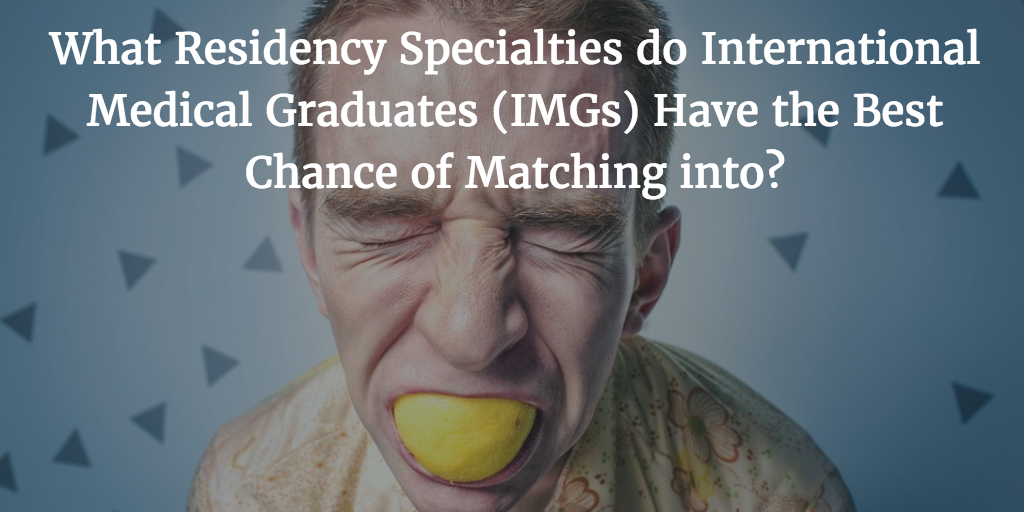
There are so many challenges that face International Medical Graduates and prevent them from getting a desired residency positions. According to the CEO of the Accreditation Council for Graduate Medical Education, it is predicted that by the end of 2016 there will be more graduates from US medical schools than available residency. The Educational Commission for Foreign Medical Graduates says that out of the 26,678 residency positions offered, only 53% of US citizen graduates of international medical schools (US-IMGs) matched, while 49.5% of non-US citizen international graduates matched.
By looking at the websites of two of the most prominent Caribbean schools we see, St. George ’s University and Ross University, that most of their graduates who matched ended up in non-procedural specialties like Internal Medicine or Family Medicine. This indicates that these specialties have the best chances of matching for the IMG. St. George’s lists 760 graduates and Ross lists 783 graduates. They take two groups of enrollees per year at different starting times. St. George’s matched 22 (2.8%) and Ross 18 (2.3%) in categorical 5-year general surgery positions. Look at it from a different point of view, of some 1,200 categorical slots, 40 graduates (3.3%) are on track to become general surgeons. Neither school listed the number or percentage of unmatched graduates.
The ECFMG pointed out an important fact which is that as of 2013, hospitals were forced to commit to either filling all of their residency positions via the NRMP or none of those positions via the NRMP. That has resulted in an increase of 2672 positions available through Match, and implies that there were much fewer positions available outside of Match last year.
The exact number of US-IMGs and Non-US citizen IMGs who obtained first-year positions in Internal Medicine and Family Medicine in the 2014 post-match supplemental process unknown, but in Surgery there at least about 450 positions that were available after the initial Match results. They nearly all consisted of preliminary slots good for only one year or in some cases two years of general surgery training. That amount of training is insufficient for obtaining board certification, however some preliminary residents do progress to 5-year positions. Data indicates that there were special cases of US-IMGs who were more fortunate. They were capable of obtaining a preliminary residency position in surgery spot after both the main and supplemental matches.
Various key questions are posed consistently. How many IMGs (International Medical Graduates), both US and Non-US citizens, do not currently have residency positions? What will those without residency positions have to do in order to earn a living? How will they pay back their student loans if they are unable to practice as physicians in the United States of America?
Excluding the Medical Colleges in Cuba, there are about 40 medical schools in the Caribbean that cater almost exclusively to US citizens. There are schools in Mexico that operate in a similar fashion. The statistics for International Medical Schools dictate that about 70% of graduates Match a residency position in any specialty, and about a 25% to 30% chance of matching in General Surgery. These percentages may be slightly less if an unknown school is chosen. According to Match data, Internal Medicine and Family Medicine are the two Residency Specialties that International Medical Graduates (IMGs) have the best chance of Matching into.
